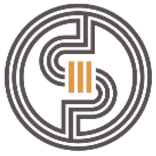Introduction
Founded in 1969, Toulouse III - Paul Sabatier University is one of the oldest universities in Europe. The university is named after Paul Sabatier, the winner of the 1912 Nobel Prize in Chemistry. The campus is spread throughout the Midi-Pyrénées region and offers a wide variety of educational majors in science, health, technology and sports.
Overview
Number of students and faculty: 31,987 students, 5,200 continuing education students and 1,500 administrative, technical and library staff.
Campus distribution: The Toulouse III University campus is located in Toulouse, southeastern France. There are 9 campuses in Toulouse, Castres, Tarbes and other cities. The main campus can be reached by bus or by bicycle along the Canal du Midi. There is also a subway station named after the school nearby.
History
Founded in 1229, Toulouse University is one of the oldest universities in Europe. In 1969, the University of Toulouse was restructured, and the University of Toulouse III was established under this background, and adopted the name of Paul Sabatier.
Establishment time
1969.
School strength
Teaching quality: As a multidisciplinary comprehensive university, it offers degree courses in many fields, including science, health care, technology, sports, humanities and social sciences, etc. The school has 11 doctoral graduate schools, defending an average of 300 doctoral dissertations each year. Its professional education level in medicine, pharmacy, dentistry and other fields is relatively high, and it has trained a large number of professional talents for France and even Europe.
Scientific research level: The school has 99 research teams, 86% of which are recognized by special qualifications. The research in the fields of materials science, mathematics, information science and technology, engineering science and technology, cosmic planetary environment, space, life science, etc. is at the forefront of France and even the world. It has achieved fruitful scientific research results, and a large number of research papers are published in internationally renowned academic journals every year.
Institutional nature
Public research university.
Educational philosophy
Focus on cultivating students' scientific research ability and innovative thinking, emphasizing the combination of theory and practice, and providing students with practical opportunities through cooperation with enterprises and scientific research institutions, so that students can better adapt to social needs, and at the same time encourage students to participate in international exchanges and cooperation to broaden their international horizons.
Key laboratories and disciplines
Key laboratories: The school has 108 The laboratories of various disciplines, such as materials science laboratory, astrophysics laboratory, life science laboratory, etc., provide advanced scientific research equipment and a good research environment for researchers and students.
Key disciplines: materials science, mathematics, information science and technology, engineering science and technology, earth science, cosmic and planetary science, life science, medicine, pharmacy, dentistry, etc.
Faculty
The school has several teaching and research units such as the School of Science and Engineering and the Department of Earth Sciences, covering multiple disciplines such as science, medicine, pharmacy, dentistry, humanities and social sciences.
Ranking
Global University Network (4ICU): 55th in national university rankings.
Webometrics: 606th in the world university rankings.
Times Higher Education - QS: 263rd in technology university rankings, 246th in natural science university rankings.
Academic Ranking of World Universities (ARWU): Top 300.
Expenses
As a French national comprehensive university, admission is free of tuition and only a small registration fee is required. The annual living cost in France is about 40,000-60,000 RMB. The consumption level in Toulouse is relatively low compared to big cities such as Paris, with an average consumption level of about 310 euros per month. After deducting housing subsidies, it can be reduced to about 250-150 euros, including transportation costs, telephone charges, food expenses, various insurance premiums, etc.
Campus
Campus environment: Toulouse has a Mediterranean climate, with hot and dry summers and mild and rainy winters. The average annual sunshine is 2027 hours and the rainfall is 650 mm/year, providing students with a comfortable learning and living environment. As the fourth largest city in France, Toulouse has rich cultural activities and convenient transportation, which is conducive to students carrying out various academic and cultural exchange activities.
Campus facilities: The school has a campus of 124 hectares and 400,000 square meters of school buildings. The campus is equipped with modern libraries, laboratories, sports facilities, etc., providing students with good learning and living conditions.
-

University of Angers
-
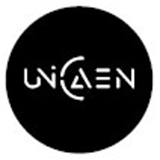
University of Caen Normandy
-

University of Bordeaux
-
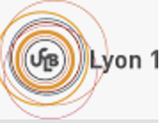
Claude Bernard University Lyon 1
-
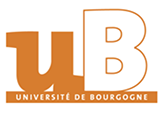
University of Burgundy
-

CY Cergy Paris University
-
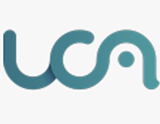
Clermont Auvergne University
-
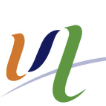
University of Artois
-
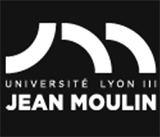
Jean Moulin University Lyon 3
-

University of Franche-Comté
-

Mesoamerican University
-

Istmo University
-

Mariano Galvez University of Guatemala
-

Regional University of Guatemala
-

Galileo University
-

Francisco Marroquín University
-

Rafael Landívar University
-

University of the Valley of Guatemala
-

University of San Carlos of Guatemala
-

Technological Institute of Tlaxcala Plateau
-

Golfo University
-

Technological University of South Sonora
-

Technological University of Huejotzingo
-

Tizimín Institute of Technology
-

Chilpancingo Institute of Technology

